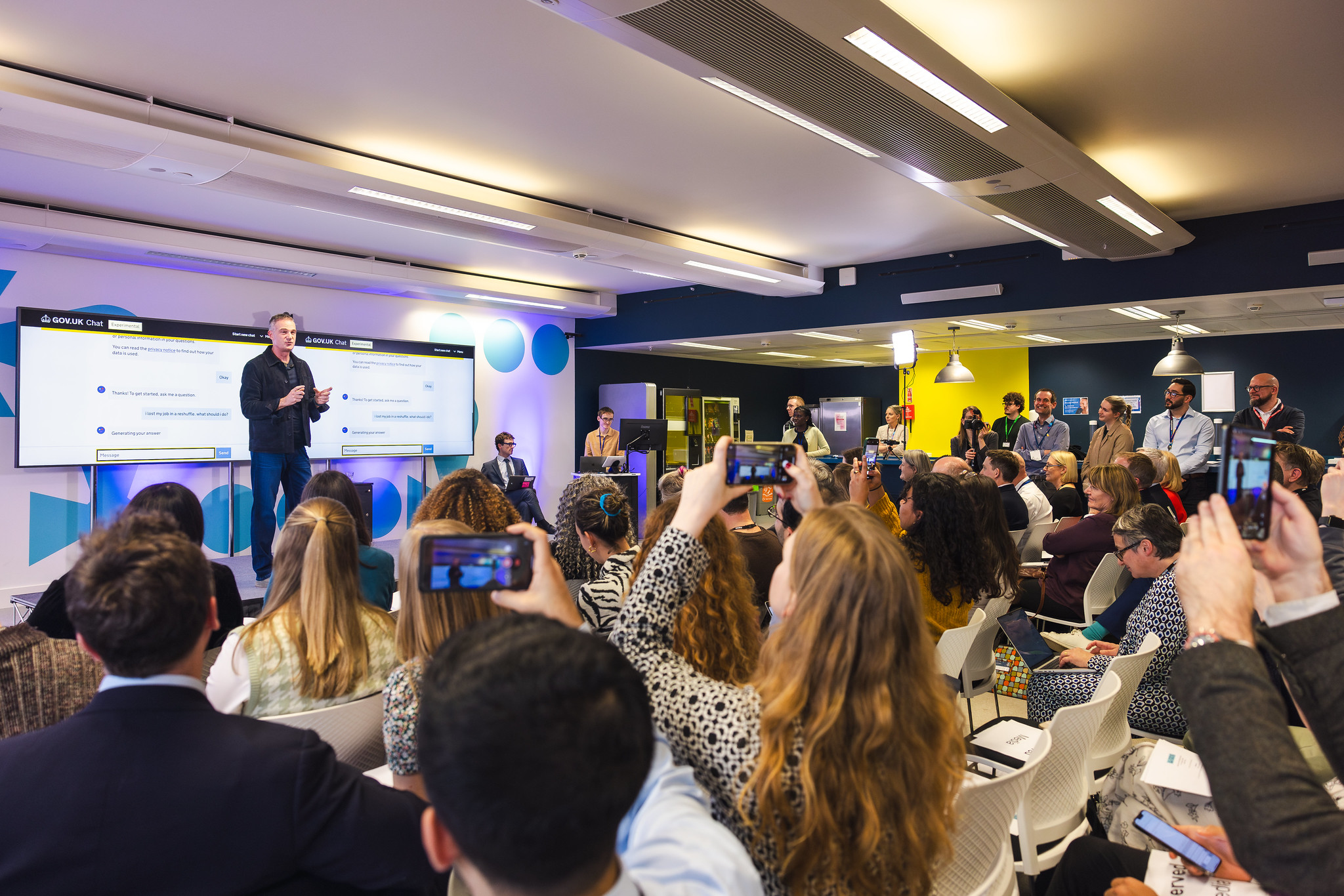Technology has profoundly changed the way we live our lives and continues to do so. We expect to be able to do almost anything through our phones or laptops. So digital transformation is far from unique to the public sector. Every organisation needs to consider how to respond to this change. What is unique about government is the scale of the public sector and the scale of the impact on every person in the country.
So how do we respond to that challenge? Fundamentally, a lot of the answer to this does not change. It’s about building digital and data skills, within the profession and, crucially, among leadership at the highest levels. It’s about improving the experience of people who use services. It’s about automation, so that colleagues can spend time on higher value tasks such as solving problems, and about using data more effectively.
Seizing the opportunities
What does change - and fast - is the technology itself. With evolving technology like AI, we have a unique opportunity to enable delivery of faster yet more efficient services. In turn this will improve accessibility and transparency for citizens, and boost economic growth by removing bottlenecks for business.
There are huge opportunities and we need system-wide reform in order to fully embrace them. That’s why I am delighted to be working with the exceptional, multidisciplinary group on the advisory board for the new digital centre of government.
Strong foundations
My part in these conversations combines experience in both the private sector and in the centre of government. I have been involved in conversations about the digital transformation of the public sector for some time, most recently in my role as Chair of the Central Digital and Data Office (CDDO). A lot of great work has been done to date and we’ve drawn on the collective understanding and experience of experts across government and beyond to shape the direction of the new digital centre. We will retain what worked about the previous roadmap for digital and data, such as: a model of close collaboration across departments; and dual-focus on improving citizens’ and businesses’ experience of services. We’ll also continue the focus on driving change at the highest levels of decision making to enable a truly modern digital government. But this time around we’ve invested more time in developing an ambitious vision for the citizen experience, and have delved deeper into the opportunity for AI, which has progressed a long way since 2022.

That vision is set out in the blueprint for modern digital government published last month. What will be critical to its success will be active sponsorship from business leaders across the public sector. Digital transformation can’t be separated from business transformation, and we need business leaders to push through the organisational barriers that impede progress and slow us down.
Diverse perspectives
To build a vision that business leaders will be able to get behind, the team gathered a wide range of views from across government and beyond.
I’ve been pleasantly surprised by the diversity of perspectives we’ve brought together on the civil service team and on the advisory panel. That has led to some pointed conversations, but also to better solutions.
We’ve had a good discussion on how to balance the opportunities and risks of AI. Sarah Hunter (Technology Policy Advisor and Board member at ARIA) has helped us think about careful piloting with deep user research, but also about how to scale up rapidly so that proven models deliver outsized benefits. Talented experts in digital and data will drive the transformation that’s needed for the public sector to keep pace with changes in technology, to meet the expectations of people using services, and to do this in a way that’s far more efficient.
Building skills for success
And it’s not just about new talent, keeping pace with technology is also about building skills among existing talent. From securing the backing of leaders, to delivering great public services on the front line, investing in digital and data skills at all levels is crucial for making the most of the opportunities offered by technology.
While technical skills like software engineering and data science are essential for the journey ahead, there are many other skills that will be equally important. These include process reengineering, organisation design, change management and management of digital projects. And as technologies evolve, there will be a need for skills that we can’t even describe today. For example ‘Prompt Engineer’ is a role and set of skills that didn’t exist a couple of years ago.
Every colleague has some role to play in delivering our vision of a modern digital public sector. Those who invest in upskilling themselves will be in greatest demand.
Which new digital skills would you like the opportunity to learn?

